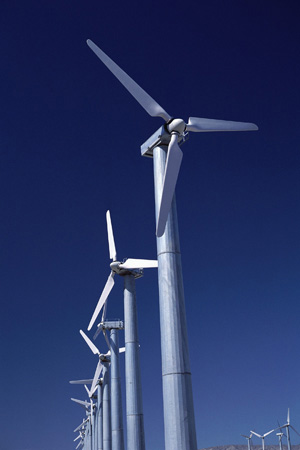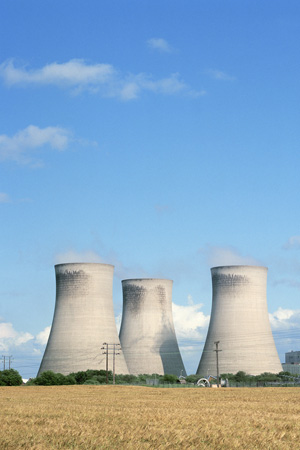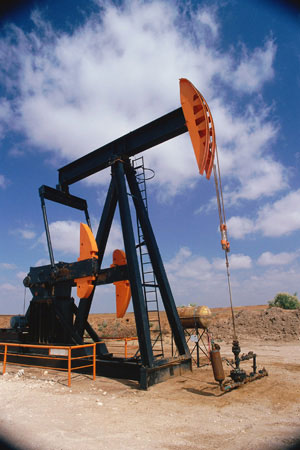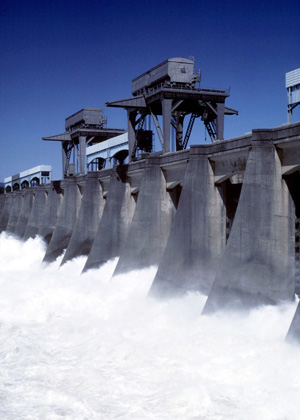
Academic leaders from some of the world’s premier universities will gather at Washington University in St. Louis Oct. 1-5 to discuss the world’s energy future at the “McDonnell International Scholars Academy Symposium: Global Energy Future.”
The international symposium marks the second such gathering in the United States. WUSTL hosted the first symposium in 2007, and the second was held in Hong Kong in 2008.
Among the participants will be international academic leaders, including the presidents of many of the McDonnell International Scholars Academy’s 25 partner universities, a select group of research universities from outside the United States that are committed to excellence in education and research and to the importance of international collaboration.
The symposium was organized by the McDonnell Academy Global Energy and Environment Partnership (MAGEEP), a consortium of those 25 partner universities as well as corporate partners who are working together on problems in energy, environmental and sustainability research, education and operations.
“The Global Energy Future Study Report,” summarizing the findings of a committee led by WUSTL Chancellor Mark S. Wrighton, will be discussed at the symposium.
“Securing abundant, affordable energy while minimizing adverse effects on the global environment is a global imperative,” Wrighton says. “To transform the sources of energy and how we use energy will require a global investment of hundreds of billions of dollars over decades, but doing so will secure our environment and ensure a better quality of life.
“I am grateful to all those who have contributed to the report we will be discussing at the symposium,” Wrighton says.

“The Global Energy Future Study Report” is intended to be an international counterpart to the capstone report on America’s energy future released last year by the National Research Council, the operating arm of the National Academies of Sciences and National Academy of Engineering (news.wustl.edu/news/Pages/14957.aspx).
One objective of the symposium is to assess the world’s future energy needs and to evaluate the ability of the available resources to meet those needs. Another is to identify research opportunities that might reduce carbon dioxide emission, improve efficiency of energy utilization or lead to more rapid deployment of renewable energy sources.
Delegates will be welcomed to the symposium on Friday, Oct. 1, in Graham Chapel by James V. Wertsch, PhD, the Marshall S. Snow Professor in Arts & Sciences, director of the McDonnell International Scholars Academy and associate vice chair for international affairs; and by John F. McDonnell, vice chair of the Board of Trustees, who provided endowment support for the academy and is one of its founders. A detailed agenda can be be found at mageep.wustl.edu/Program2010.
Following opening remarks, Wrighton will moderate a plenary session in which three keynote addresses will be delivered. Kristina M. Johnson, PhD, undersecretary of energy for the U.S. Department of Energy, will speak on “Programs and Policies to Address America’s Energy Needs”; Richard A. Meserve, PhD, president of the Carnegie Institution for Science, will speak on the “Future of Nuclear Power”; and Gary S. Calabrese, vice president of science and technology for Corning Inc., will describe the “Future of Renewable Energy.”

The dedication of the university’s Stephen F. and Camilla T. Brauer Hall, a new building that will house the School of Engineering & Applied Sciences’ Department of Energy, Environmental & Chemical Engineering, also will take place Friday, Oct. 1, to be followed by a private dinner at the Ritz-Carlton, St. Louis.
John P. Holdren, PhD, assistant to the president for science and technology and director of the White House Office of Science and Technology Policy, will deliver the dinner’s keynote address.
On Saturday, Oct. 2, the presidents of McDonnell Academy universities from different world regions will discuss their perspectives on energy and the environment during a series of panel discussions.
Also on Saturday, Greg Boyce, CEO of Peabody Energy, and Joseph Strakey, PhD, of the U.S. Department of Energy, will discuss the environmental challenges posed by coal and the progress on carbon dioxide capture and storage in a session moderated by Pratim Biswas, PhD, chairman of the Department of Energy, Environmental & Chemical Engineering in the School of Engineering & Applied Science and director of MAGEEP.
On Sunday, Oct. 3, Richard L. Axelbaum, PhD, professor of chemical engineering, will host a tour of the university’s Advanced Coal Research Facility.
Technical sessions, which are sponsored by WUSTL’s Consortium for Clean Coal Utilization and the International Center for Advanced Renewable Energy & Sustainability (I-CARES) as well as the McDonnell Academy, will begin Monday, Oct. 4.

Sessions will focus on solar energy, bioenergy, carbon sequestration, building design, entrepreneurship in technology development, and venture capital for clean energy.
Delegates will report on 11 collaborative research programs funded with MAGEEP seed money and decide on the direction of future work, says Biswas, the Stifel and Quinette Jens Professor of Environmental Engineering Science and a symposium coordinator.
U.S. Senator Kit Bond will deliver the keynote address on clean energy work being done in Mo. at lunch on Monday.
On Tuesday, Oct. 5, the closing day of the symposium, the Department of Energy, Environmental & Chemical Engineering will host a daylong short course on energy and the environment.
The technical sessions will continue in parallel with the short course.
The conference will be live-streamed. Visit ustream.tv/channel/international-mageep-symposium to listen.
More than 800 students at McDonnell Academy partner universities have joined a MAGEEP doctoral network to discuss issues related to energy and the environment. The MAGEEP doctoral students have events scheduled for nearly every day of the symposium, ranging from a night at St. Louis’ City Museum Friday, Oct. 1, to an information session about the MAGEEP doctoral network Monday, Oct. 4.
The complete agenda for student activities can be found at mageep.wustl.edu/symposia/symposia10/student%20network/StudentSymposiumActivities.aspx.
The students ran a “Green Your Campus” contest for the best idea for improving energy efficiency on campus. The suggestions, which include an inter-building contest on campus to reduce energy use and the provision of communal bicycles for on-campus use, can be viewed at mageepdocnetwork.ning.com/video. The contest winners will be announced at the symposium.
For more information about the symposium, e-mail Kristin Williams at kwilliams23@wustl.edu or Kim Coleman at kcole@wustl.edu.